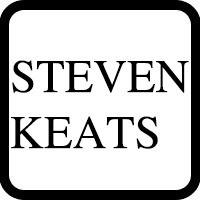Jasleen Kaur Anand | Attorney
Top Local Lawyers
 Premium
Premium
Michael John Borrelli
Borrelli & Associates P.L.L.C.
Employment,
910 Franklin Avenue Suite 200
Garden City, NY 11530
 Premium
Premium
Paul F. Oliveri
Oliveri and Schwartz, P.C.
Accident & Injury, Car Accident,
1140 Franklin Ave
Garden City, NY 11530
 Premium
Premium
Thomas E. Stagg
Stagg Wabnik Law Group LLP
Lawsuit & Dispute, Litigation, Banking & Finance, Lawsuit, Complex Litigation
401 Franklin Ave Suite 300
Garden City, NY 11530
 Premium
Premium
Debra Lynne Wabnik
Stagg Wabnik Law Group LLP
Lawsuit & Dispute, Employment, Civil & Human Rights, Other, Business
401 Franklin Ave Suite 300
Garden City, NY 11530
 Premium
Premium
John Nicholas Miras
The Bongiorno Law Firm, Pllc
Lawsuit & Dispute, Personal Injury,
1415 Kellum Pl Suite 200
Garden City, NY 11530
 Premium
Premium
Douglas P. Mayer
Law Office Of Douglas P. Mayer
Divorce & Family Law, Estate,
114 Old Country Rd Suite 248
Mineola, NY 11501
 Premium
Premium
Steven Lloyd Keats
Steven L. Keats Esq.
Criminal, Estate,
128 Front St
Mineola, NY 11501
 Premium
Premium
Ramy Louis
The R.M.L. Law Firm, PLLC
Criminal, DUI-DWI, Misdemeanor, Felony, Traffic
145 Willis Avenue Suite 4
Mineola, NY 11501
 Premium
Premium
Richard S. Feinsilver
Richard S. Feinsilver, Esq.
Real Estate, Bankruptcy, Bankruptcy & Debt,
One Old Country Road Suite 125
Carle Place, NY 11514
About Jasleen
Jasleen K. Anand, is a solo practitioner with an Of Counsel attorney to the firm and an office at Rockville Center, New York. Since March 2002 she has been shaping the development of various business in Long Island, and through out the five boroughs of New York City, by providing creative, practical, and insightful advice. She takes pride in being a tenacious representative for businesses with her efficient, effective, problem solving skills. She has represented business of all sizes, including prominent companies, closely held businesses and individuals.
Law Office of Jasleen K. Anand was founded on solid core values. We believe these core values serve as the founding principles for dealing with clients and with one another. We instill these values in our support staff.
- Maintenance of Relationships - Jasleen Kaur recognizes a key element of her client's success is a successful relationship with the law firm. Every client she represents is her business partner.
- Commitment - She sends quarterly news letters to her existing and former clients to update them on the changes in the law affecting their businesses and them as individuals. We are committed to understanding our clients' business, predicting their needs, and creating a plan/chart for them to tread the path of success.
- Timeliness - In today's fast paced business environment, timeliness is critical to success. When our client calls, we respond in a timely manner. Communication is the key to a meaningful relationship.
- Focus on Specialty Areas - The firm represents a publicly traded company, private for Profit and Not-For-Profit Real Estate Developers, Closely Held Businesses and Individuals. Our practice is limited to the areas of Real Estate-Commercial and Residential, Real Estate Development-Affordable Housing, Commercial Leasing, Business Transactions & Business Succession Planning, Community Banking, and Estate Administration.
A COMMENTARY ON 'FLIP TAXES'
A flip tax is a fee imposed upon the seller/assignor of a cooperative unit when the shareholder transfers the unit to a purchaser. This fee allows the cooperative corporations to increase their reserve funds to make current or future improvements in the building and to avoid boosting the maintenance fee.
There is wide disparity among various corporations of using methods to compute this flip tax, depending upon the way prescribed in the governing documents of the corporation. As a result, no two corporations require the same amount of tax in dollars and cents. Some cooperative corporations base the flip tax on the number of shares actually being sold and accord a dollar value to each share. Others favor a flat fee method by charging the same fee to all assignors, regardless of the size of the unit being transferred. Some calculate flip tax as a percentage of the gross sale price, while others calculate it as a percentage of net profit. Still others combine all of these methods.
BACKGROUND OF DECISIONAL AND STATUTORY LAW
In the 1985 case of Fe Bland v. Two Trees Management Co., et al., 330 West End Apartment Corporation v. Kelly, 66 N.Y.2d 556, 489 N.E.2d 223, 498 N.Y.S. 2d 336 (1985), the New York Court of Appeals grappled with the issue of whether the imposition of the tax violated the corporation's proprietary lease and whether the flip tax should be returned to the shareholder. The lower court ruled it did violate the proprietary lease and had to be returned. The appellate court held that where the bylaws of the corporation provided that the board may impose "only a reasonable fee to cover actual expenses and attorneys' fees of the Corporation, a service fee of the corporation and such other conditions as it may determine", the board may not charge flip tax. The court had reasoned that the term "other conditions" could not be construed to give the authority to the board to charge a flip tax and, to do so, would have meant reading the sentence fragment out of context and contrary to the rule of construction.
The court also ruled that flip tax may not be charged where such tax "was not in proportion to the shares held". The proprietary lease here has provisions such as a "cash requirements" provision. Under the cash requirements provision, the lease provided:
"[cash] requirements' whenever used" means the amount necessary for operation and improvement of the property, contingency reserves and the payment of liabilities and expenses after giving consideration to income expected and cash on hand.... The form and provisions of all the proprietary leases then in effect and thereafter to be executed may be changed by the approval of lessees owning at least 75% of the Lessor's shares then issued, and such changes shall be binding on all lessees even if they did not vote for such changes, except that the proportionate share of rent or cash requirements payable by any lessee may not be increased... without his express consent.
The court found the flip tax not to be "proportional to the number of shares held by that shareholder in relation to total number of issued shares" and it was "not approved by 75% of the shareholders".
The court's reasoning was also based upon a close reading and understanding of the statute, Business Corporations Law $ 501 (c), which stated then in its entirety: "Subject to the designations, relative rights, preferences and limitations applicable to separate series and except as otherwise permitted by subparagraph two of paragraph (a) of section five hundred five of this article, each share shall be equal to every other share of the same class." In this matter, the board of directors had passed a resolution to amend the bylaws to assert that upon assignment, the board shall impose a transfer fee in varying amounts from $50 per share to $200 per share, depending upon whether the seller had purchased the unit from a sponsor or from a non-sponsor and whether the assignor had owned the unit for greater than five years. The court stated that the legislature meant for the shares of the same class to be treated equal in all respects to every other share of the class and, therefore, the flip tax was illegally imposed upon the assignor.
AFTERMATH OF DECISIONAL LAW
It was in 1985 that the Fe Bland case was decided. It stirred a pandemonium in the cooperative corporation industry and caused cooperative corporations to raise a united voice in the legislature. As a result, the New York State Legislature amended the Section 501 (c) of the Business Corporation Law by enacting the Chapter 598 of the Laws of 1986. The amendment authorized the corporations to charge the flip tax not only on the basis of a per share but also on the basis of other methodologies used by cooperative corporations, but "only if the cooperative's maintenance charges, general assessments pursuant to a proprietary lease, and voting, liquidation or other distribution rights are substantially equal per share".
Then a decade later, on or about March 1996, the Legislative Assembly revisited the issue of flip taxes and pointed out that previous amendment did not resolve all the outstanding problems for generally all the cooperative corporations, specifically ones that provided in their organizational documents that "every shareholder shall have only vote regardless of the number of share held". The Assembly determined that variable formulas that take into account the sale price, profit, holding period or other criteria, retained by various corporations render fairer results than a fixed formula and amended that statute accordingly.
Thus in the final analysis, the statute, having gone through a metamorphosis, reads:
With respect to corporations...on a cooperative basis, however, provided that (2) changes in maintenance charges and general assessments...have been and are hereafter fixed and determined on an equal per share basis or an equal per room basis or as an equal percentage of the maintenance charges, and (3) voting rights are substantially equal per share or the certificate of incorporation provides that the shareholders holding the shares allocated to each apartment or dwelling unit owned by the corporation shall be entitled to one vote in the aggregate regardless of the number of shares allocated to the apartment or dwelling unit or the number of shareholders holding such shares, shares of the same class shall not be considered unequal because of variations in fees or charges payable to the corporation upon sale or transfer of shares and appurtenant proprietary leases that...or properly amendments to the foregoing instruments.
It is nice that the cooperative corporations were able to have it their way at the end and their sacred "business judgment rule" was sheltered, but what about the prospective purchasers who are denied loans or whose loan amounts are reduced by the amount of flip tax? The market ought to have some responsibility towards the purchasers who have immaculate credit history and meet all criteria of the cooperative board, in terms of financing contingencies and limitations, but unfortunately cannot purchase the unit because the lenders' underwriting guidelines (prescribed by Fannie Mae) provide that buildings that impose flip taxes will be eligible if the flip tax is generally no greater than 3% of the sales price. State of New York Mortgage Agency Low Interest Rate Program-Credit and Property Underwriting Requirements-Cooperative Share Loans provides that, "Loans in cooperative with flip taxes will generally be handled by reducing the sales price of the cooperative unit by the amount of the flip tax. The loan amount will be based on 90 percent of the computed sales price."
Buildings that charge a lofty flip tax undoubtedly put a burden on the market, on the potential purchasers, on lenders, on lenders' underwriters and even on sellers/assignors of the units. Assignors who choose to sell/assign their units shortly after purchasing them, feel the pressure of paying the high flip tax, especially since they were truly never the recipients of any and all benefits, if any, that flowed from the charge of the flip tax. In this circumstance and many other related ones then, the flip tax causes an unreasonable restraint of an owner's right to transfer his or her property. A high flip tax also discourages investors from purchasing cooperative units. Cooperative corporations that base their calculation of flip taxes on the amount of seller's profit invite collusion between sellers and buyers to refrain from declaring the entire sale price.
New legislation ought to be enacted which addresses the needs of both the assignors as well as and most importantly, the prospective purchasers. Perhaps legislation should address the possibility of not charging a flip tax to assignors who plan to move to another unit within the same building. The legislature's thought, that variable flip tax renders more equitable results than a fixed formula, is I believe entirely true for cooperative corporations, but not necessarily so for assignors/sellers and the prospective purchasers, especially if the cooperative board of the cooperative corporation amends the governing documents to the surprise of the assignors.
Real Estate Affordable Housing practice is focused on representing For-Profit as well as Not-For-Profit entities that plan, joint venture and build Housing for the elderly, Supportive Housing for individuals graduating from foster care system, individuals infected with HIV and other Affordable Housing Projects.
Estate Planning practice is focused on addressing the appropriate needs of seniors that attend social services provided by the Not-For-Profit organizations.
Education
Touro College Jacob D. Fuchsberg Law Center
J.D.
Law Office Of Jasleen K Anand Highlights
Dispute Resolution, Banking & Finance, Estate Administration, Estate Planning, Government Agencies, Housing & Urban Development; Litigation; Divestitures; Real Estate; Tax













